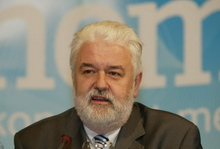- Serbia
Get to know Serbia
- Citizens
Culture and science
Health services
Pension and disability insurance
- Business
Employment
Economy
- Media
- Government
- Contact
Keep in touch
Contact form
Back
Keepin touch
Whether you have a question, comment, suggestion or any problem in the purview of the government, send us your message and we will try to respond as soon as possible. If your problem is not in our purview, we will forward your message to the relevant institution.
Q:
A:
Budget for 2007 to end with a surplus
Belgrade,
5 December 2007
Serbian Minister of Finance Mirko Cvetkovic said today that it can be said with certainty that the budget for 2007 will be ended with a surplus, although the projected deficit was RSD 13 billion.
Participating in a roundtable on financial services in southeastern Europe, Cvetkovic said that for 11 months, surplus amounted to RSD 37.5 billion and that the Ministry of Finance and the government, with great effort, managed to reduce costs in relation to what was planned.
He said that the existing budget bill for 2008 should not be modified and that requests of strikers can be fulfilled only in line with allotments already given by the budget as a consequence of rationalisation of funds.
The minister recalled that preparation of the budget for 2008 is followed by a series of strikes by budgetary users although most of economic analysts rightly state that salaries are at the top limit of what the economy can bear.
He said that the budget bill was withdrawn from Serbian parliament for purely procedural reasons, and now it has been returned again so the discussion on this document will start on Monday.
He announced that the state plans to completely withdraw from banking system middle term, noting that four banks Postanska Stedionica, Credy Banka, Srpska Banka and Pancevacka Banka are majority state owned.
According to him, most of these banks need recapitalisation, primarily Postanska Stedionica and Srpska Banka and announced tenders for some of these four banks next year. State Secretary of Finance Slobodan Ilic said that the work on amending the Law on securities is underway and that the government should discuss this bill at the end of the year.
He said that one of the important changes in the law will be the reduction of capital gains tax from 20% to 10%, but added that the proposal was adopted that capital gains be calculated once a year and that tax is collected only after that. Representative of the International Monetary Fund in Serbia Harald Hirschhofer said that the situation of the Serbian economy is good and that growth is continuous, but that the problem is that a great part of growth is a result of demand, which is based on spending, so the loans and foreign private debt are growing.
In order to prevent that it is necessary to make continued structural reforms of the Serbian economy, which means quicker privatisation, attraction of foreign investors and greater market flexibility. Hirschhofer said that the capital market is also starting to grow which can contribute to quicker development of Serbia, but it is necessary to improve the total legislative and institutional framework.
He announced that the state plans to completely withdraw from banking system middle term, noting that four banks Postanska Stedionica, Credy Banka, Srpska Banka and Pancevacka Banka are majority state owned.
According to him, most of these banks need recapitalisation, primarily Postanska Stedionica and Srpska Banka and announced tenders for some of these four banks next year. State Secretary of Finance Slobodan Ilic said that the work on amending the Law on securities is underway and that the government should discuss this bill at the end of the year.
He said that one of the important changes in the law will be the reduction of capital gains tax from 20% to 10%, but added that the proposal was adopted that capital gains be calculated once a year and that tax is collected only after that. Representative of the International Monetary Fund in Serbia Harald Hirschhofer said that the situation of the Serbian economy is good and that growth is continuous, but that the problem is that a great part of growth is a result of demand, which is based on spending, so the loans and foreign private debt are growing.
In order to prevent that it is necessary to make continued structural reforms of the Serbian economy, which means quicker privatisation, attraction of foreign investors and greater market flexibility. Hirschhofer said that the capital market is also starting to grow which can contribute to quicker development of Serbia, but it is necessary to improve the total legislative and institutional framework.
-
 Belgrade, 21 July 2025
Belgrade, 21 July 2025Construction of oil pipeline with Hungary to begin early next year
-
 Belgrade/Athens, 17 July 2025
Belgrade/Athens, 17 July 2025Serbia continues to align with EU in field of energy
-
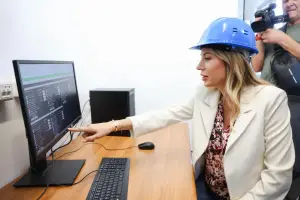 Kostolac, 14 July 2025
Kostolac, 14 July 2025First solar power plant Petka in Kostolac put into trial operation
-
 Belgrade, 11 July 2025
Belgrade, 11 July 2025Potential for improving cooperation with Belarus in many areas
-
 Požega, 5 July 2025
Požega, 5 July 2025Section of Pakovraće - Požega highway officially opened
-
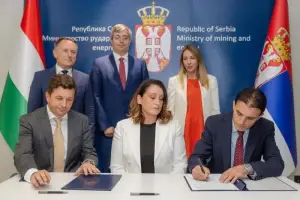 Belgrade, 2 July 2025
Belgrade, 2 July 2025Technical specifications defined for Serbia-Hungary oil pipeline
-
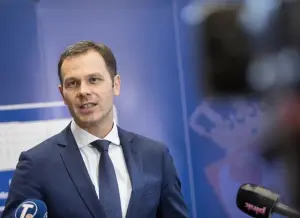 Belgrade, 30 June 2025
Belgrade, 30 June 2025IMF confirms Serbia successfully implementing all agreed reforms
-
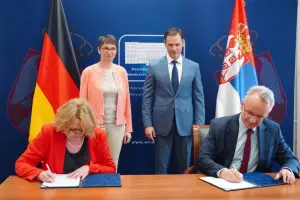 Belgrade, 27 June 2025
Belgrade, 27 June 2025Double Taxation Avoidance Agreement with Germany signed
-
 Kostolac, 25 June 2025
Kostolac, 25 June 2025Construction of Kostolac wind farm nearing completion
-
 Belgrade, 24 June 2025
Belgrade, 24 June 2025Government supports request for new postponement of sanctions against NIS

